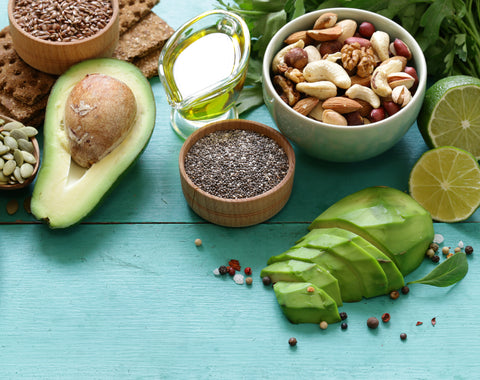Your Cart is Empty
Buy 2 Of Any Product, Get 20% Off

Let’s accept the possibility and learn how to deal with it. We have preventive vaccines and safety equipment to ward off infections, but it’s still important to know what to do when someone inside your home tests positive.
Balancing emotional and physical strains is difficult as we deal with the COVID-19 pandemic. You can’t go near your family member who is sick, nor can you hold their hand and say ‘everything will be fine’.
The sick person undergoes a lot of struggles emotionally and physically without a helping hand. Studies have found that COVID-19 survivors are prone to psychological impairments. Lack of knowledge in dealing with the pandemic and anxiety issues worsens these conditions. We need to be alert but not anxious!

Quarantine is not just about sitting inside your room and waiting to test negative. There’s a lot more to it. From the start of quarantine to the end of it, you need to prepare yourself and your surroundings to make the whole process stress-free.
Tested positive? Here's what you should do next:
If anyone in your family shows symptoms, or if you come in contact with an infected person or have tested positive, the first and foremost thing to do is isolate. Make the possibly infected person stay in a separate room with an attached bathroom if possible, for 14 days.
If you live in a shared space, make sure that there is proper ventilation and distance between the beds. Family members of the sick should also quarantine. If symptoms exist even after 14 days, extend the quarantine and wait until the person tests negative to end it.

Some general guidelines that you must follow during quarantine:
Most essentially, the caregivers should be extra careful while going near the patient. While doing the laundry of the sick, wear gloves and wash it with the best cleaner and at the hottest temperature possible to flush out viruses.
Apart from wearing a mask and gloves, protective equipment should be carried while dealing with the sick and their belongings. And, if possible, only one person should act as a caretaker. Keep all others in your family away from the ill person.
It's really important to regularly monitor the health of the sick person. If the person has any other health risks such as asthma, diabetes, or cardiovascular issues, it’s necessary to provide intensive care. The caretaker should also have the contact details of medical assistance providers to dial in case of emergency.

Quarantine is not the time to experiment with your health. Covid-19 doesn't have any prescribed treatment. Taking rest, hydrating your body, and a proper diet are needed to ward off infection. Instructions and guidance from a doctor are also necessary. There are many fake news, remedies, and myths flooding social media. People in quarantine should not try these without confirming the legitimacy of such information.
You can also make use of an oximeter and the CDC's interactive Coronavirus Self Checker (CSC) mobile-friendly tool to know when to get medical assistance.
WHO verified food and nutrition tips should be followed for better recovery. To help people in self-quarantine improve their health and immune system, WHO has introduced a list of the best food items (long-lasting foods) to buy and some nutritious recipes.
Before isolating, people tend to overbuy food products. This is called panic buying, and it can make things more difficult for those around us. It is imperative to choose necessary items that help you in quarantine and that last long. Unnecessary buying leads to a price hike and shortage.

WHO recommends frozen vegetables, long-lasting canned soups, cereals, dried nuts, and eggs to be included in the daily diet since they are nutritional and long lasting.Avoiding alcohol consumption, tea, coffee, and caffeinated soft drinks is also important during quarantine.
Quarantine doesn't mean the sick need to linger on the bed all the time. This will only make things emotionally and physically stressful. If there are only mild symptoms, schedule your days by including more activities to make them positive. Prolonged idleness will affect your mental health, leading to depression and anxiety disorders.
Sitting inside a room for 14 days may make the patient anxious, stressed, and bored. So, to escape from boredom, the patient can find some new hobbies if he/she wants. Help them find some good books or good movies and series that keep their mind engaged. Also, if they want they can do small exercises that rejuvenate their mind and body.
Having a routine helps you to balance your mental health. A positive and self-disciplined mind is the way to easy recovery. Planning the days helps to avoid boredom and overthinking about the intensity of the disease, and the whole family can socialize through social media and video calls to remain positive.
Following the government guidelines and adhering to the preventive measures are necessary to beat the chain of the virus. Stay safe and stay isolated if you develop symptoms. Quarantine is not a stress-generating or depressive part of this disease. This is the time to prepare your physical and mental health for a speedy recovery.
By following the quarantine rules and directives, you are protecting your loved ones and people who are at severe risk of infection. Quarantine is not your doom. Consider it as the time you invest to get a healthy future.
Find the best personal protective equipment to deal with the pandemic from the extensive collection at Go Safemate.

| Item | Price | Qty | Total | |
|---|---|---|---|---|
| Subtotal | $0.00 | |||
| Shipping | ||||
| Total | ||||